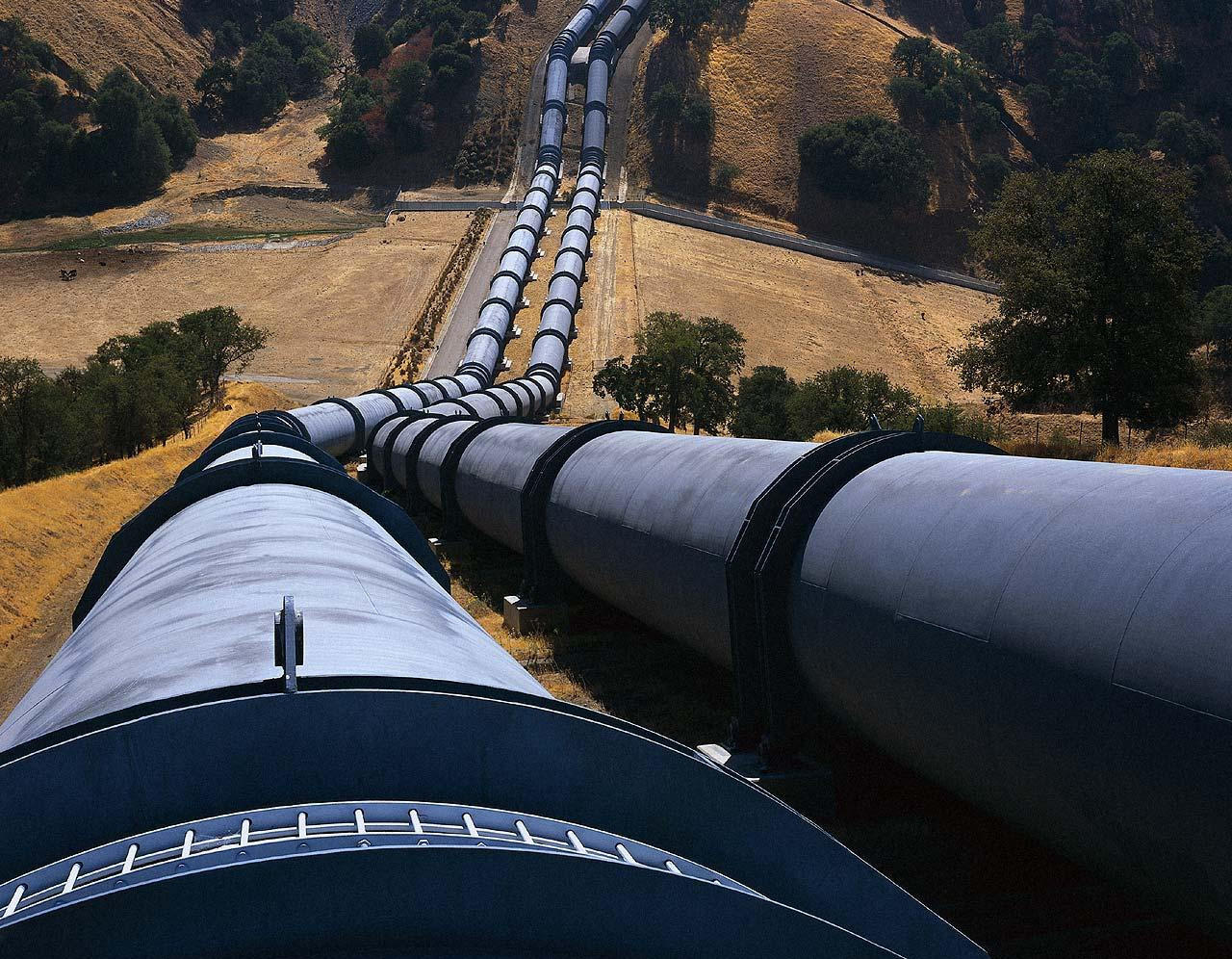The flow of oil from Kazakhstan and Turkmenistan to European markets through Azerbaijan’s territory has seen an uptick, accounting for 17.3 percent of the total volume of oil transportation in January via the Baku-Tbilisi-Ceyhan (BTC) pipeline.
According to data released by the State Statistical Committee, the BTC pipeline transported over 430,000 tonnes of oil originating from Turkmenistan and Kazakhstan combined during January.
The BTC pipeline transported more than 2.4 million tons of crude in January, making up 76 percent of total volume of oil transportation. Azerbaijani oil accounted for 82.7 percent or 2,055.3 thousand tonnes of the total volume shipped through the BTC pipeline during this period.
BTC pipeline links Sangachal Terminal on the shores of the Caspian Sea to Ceyhan marine terminal on the Turkish Mediterranean coast. Along with Azerbaijani oil, crude oil from Turkmenistan and some volumes of Tengiz crude oil from Kazakhstan are transported through the BTC pipeline.
Energy-rich Kazakhstan started exporting its oil via the BTC pipeline since last year, following a master agreement signed between SOCAR and the Kazakh national energy company KazMunayGas. This agreement enables the transit of 1.5 million tonnes of oil annually, with both parties committing to conducting 12-14 tanker voyages between the ports of Baku and Aktau each year.
For the past two decades, Kazakh crude oil was primarily transported through the Caspian Pipeline Consortium (CPC) pipeline to the Black Sea port of Novorossiysk in Russia. However, a Russian court's threat to shut down the CPC pipeline in July 2022 prompted the Kazakh government and major foreign producers to seek alternative routes.
Prior to receiving Kazakh oil, SOCAR carried out essential upgrades to the collector pipeline network at the Sangachal Terminal in 2022. These upgrades aimed to enhance the capacity utilization of the pipeline network to facilitate the intake of Kazakh oil into the BTC pipeline.
Meanwhile, Kazakhstan is currently in talks with Azerbaijan to further enhance the flow of its oil beyond the BTC pipeline. The Baku-Supsa pipeline is being considered as a potential route to transport up to three million tons of Kazakh oil annually.
The 833-kilometer-long Baku-Supsa pipeline, also known as the Western Route Export Pipeline, connects the Sangachal Terminal near Baku to terminal in the Black Sea coastal city of Supsa in Georgia. It has a capacity of five million tons per year and has been operational since April 1999.
However, recent geopolitical developments in the Black Sea have led the Western companies to reroute oil from the pipeline to the much bigger BTC pipeline since 2022.
Last year, Azerbaijan offered Kazakhstan to transport five million tonnes of Kazakh oil through the Baku-Supsa pipeline. If agreed upon, oil from the Kashagan field, one of the largest oil fields discovered in the past four decades, was expected to be transported via this route, further solidifying Azerbaijan's position as a key transit hub for Caspian energy resources destined for global markets.







 President Ilham Aliyev shed light on the evolving contours of the peace process with Armenia during an international conference in Baku this week. ...
President Ilham Aliyev shed light on the evolving contours of the peace process with Armenia during an international conference in Baku this week. ...
 Azerbaijan and Armenia started the process of demarcation of their border on Tuesday, with the installation of the first border markers based on ge...
Azerbaijan and Armenia started the process of demarcation of their border on Tuesday, with the installation of the first border markers based on ge...
 President Aliyev emphasized the critical role of the North-South Transport Corridor in fostering transport cooperation between Azerbaijan and Russi...
President Aliyev emphasized the critical role of the North-South Transport Corridor in fostering transport cooperation between Azerbaijan and Russi...
 Iran and Pakistan have signed eight cooperation documents in various fields, and agreed to strengthen ties to fight terrorism in the region.
Iran and Pakistan have signed eight cooperation documents in various fields, and agreed to strengthen ties to fight terrorism in the region.
 As the conflict between Ukraine and Russia escalates, the strategic importance of Kharkiv, Ukraine's second-largest city, has come sharply into focus.
As the conflict between Ukraine and Russia escalates, the strategic importance of Kharkiv, Ukraine's second-largest city, has come sharply into focus.
 Iranian President Ebrahim Raisi expressed Tehran’s readiness to participate in significant development projects in Sri Lanka during the inauguratio...
Iranian President Ebrahim Raisi expressed Tehran’s readiness to participate in significant development projects in Sri Lanka during the inauguratio...



